Last Updated: 07/05/2025
What Are Prescription Diets for Pets?
Confused about retail vs precription diets for pets? Take a read through our comprehensive Vet-guide for all the answers!
Author: Dr Carla Paszkowski BVSc (Hons)
Reading Time: 43 minutes - long read
What is a veterinary diet, and how do they work?
You've heard of prescription drugs, but have you heard of prescription food? The idea of a pet prescription diet to treat a serious medical condition was first invented in the 1930s, when a veterinarian named Dr. Mark Morris designed a diet for a dog with kidney disease, and went on to create Hills Prescription Diet. Nowadays, there are multiple brands that produce different varieties for a wide range of health conditions.
Note: for the purpose of this article, both the terms 'prescription' and 'veterinary' are used to describe vet-prescribed food, while 'retail' is used to describe food that does not require a veterinary recommendation.
Prescription vs Retail Diets: What's the Difference?

You may have noticed there are pet foods labelled for a health condition that require a veterinary recommendation and are sold in vet clinics ('veterinary' diets), while some other diets seem to treat the same condition but don't require a veterinary recommendation and sold in pet stores ('retail' diets). To further confuse us, one brand may even have a retail line and a veterinary line - for instance, Hills Science Diet provides non-veterinary diets available from pet stores, while Hills Prescription Diet provides veterinary diets that require a veterinary prescription.
Typically, the difference lies in the approach:
Retail diets are preventative - they aim to prevent a condition from developing. This approach may be suitable if your pet is healthy but likely to develop certain health conditions, for reasons such as a previous injury, family history, or breed predisposition. Retail diets tend to contain relevent health-supporting ingredients, but in lower concentrations than a veterinary diet.
Veterinary diets are restorative - they aim to provide a 'treatment' or 'cure' for an established condition. This approach may be needed if your pet is already suffering from a medical issue. Veterinary diets are often used alongside veterinary prescribed drugs or treatments. Compared to retail diets, veterinary diets tend to contain stronger concentrations of relevant ingredients.
In Australia, veterinary diets are available from Hills Prescription Diet, Royal Canin Veterinary Diet and Diamond Care RX.
How do Veterinary / Prescription Diets Work?
The way veterinary diets work depends on the specific formula and the condition they are treating. To help categorise and delve deeper into veterinary diets, I have separated them into the particular health conditions they address. Correlating retail diets (and some extra tips!) are also mentioned under each health condition.
Skip to a Condition:
Food Allergies and Intollerences
Anxiety
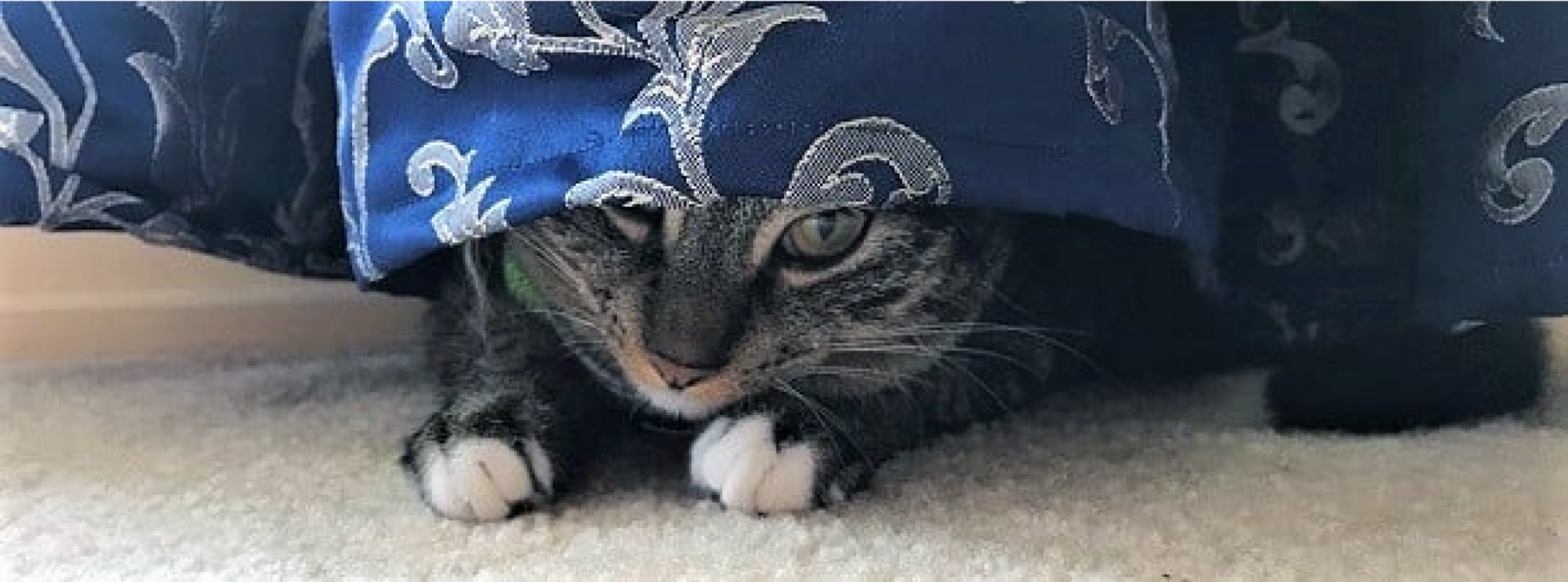
A serious condition and more common than you might think, anxiety affects pet dogs and cats of all breeds and sizes. One out of every six dogs may suffer from canine anxiety, which may present in the form of separation anxiety, noise and storm phobias, or other problem behaviours such as hyperactivity or destructive habits. Cats are very prone to anxiety and it can present in a number of different ways, particularly urinary issues such as cystitis or urine spraying, aggression, excessive vocalising, over-grooming and hair loss, humping, and reduced appetite.
How to manage anxiety in pets
The treatment of anxiety in both cats and dogs often requires a multimodal approach.
1. Training - The first and foremost treatment for most forms of anxiety is proper training. This may vary depending on your pet and their specific form of anxiety, so we highly recommend consulting with your vet for advice on training.
2. Anxiety supplements - Calming supplements that contain casein or L-tryptophan can be very effective. Zylkene or PAW Blackmores Complete Calm are great options. Zylkene is an easy-to-give capsule containing a natural product derived from casein, a protein found in milk that is known for calming newborns during breastfeeding.
3. Pheromone products - For dogs, pheromone product Adaptil is available in a convenient spray. For cats, feline pheromone diffuser Feliway is notoriously effective, often used in vet clinics and cat hospitals all over the world. For more information, see Your Guide to Using Feliway.
4. Anxiety diets - food infused with L-tryptophan such as Hills Prescription Diet c/d Multicare Stress or hydrolysed milk or fish protein such as Royal Canin Calm and Relax Care can work wonders on anxious pets. Read more about these and how they work below.
Veterinary & Retail Diets for Anxiety
Table Componenet
For comprehensive guides about anxiety management, see our articles Separation Anxiety in Dogs, How to Reduce Anxiety in Cats, How to Reduce Stress in Multi-Cat Households and Helping Pandemic Pets Adjust to Changing Routines.
Arthritis and Joint Care

Arthritis, scientifically referred to as osteoarthritis or degenerative joint disease, is a degenerative, progressive, and irreversible condition of the joints. While some degree of inflammation does occur, arthritis in dogs is also characterised by a loss of the cartilage (the soft structural component that overlies and protects the bone) and the formation of 'osteophytes' which are new pieces of bone laid down in an effort to protect the joint surface. Symptoms of Arthritis include lameness or limping which worsens after strenuous exercise, stiffness especially after rest, slow to rise from sitting or lying, reluctance to use stairs or jump into the car, and avoiding sitting or lying on hard surfaces.
The best ways to manage arthritis include:
1. Daily joint maintenance supplements such as 4cyte, Glyde, or Paw Blackmores Osteosupport. These supplements tend to contain omega fatty acids from marine sources, glucosamine and chondroitin.
2. A joint care diet - 'joint care' diets are infused with similar ingredients to the joint care supplements listed above. These ingredients include omega fatty acids, glucosamine and chondroitin. Diet options in this category include retail diets (such as Hills Science Diet Mobility and Royal Canin Joint Care) for pets that don't currently have arthritis but are at risk of developing it, and veterinary joint care diets (such as Hills Prescription Mobility diets and Royal Canin Veterinary Mobility Support, which are ideal for pets that are curently suffering from arthritis and need active treatment.
3. Medication - Of course, many cases of osteoarthritis require proper medication from your vet. Popular medications for arthritis pain include non-steroidal antiinflammatories (eg. Meloxicam or Carprofen), corticosteroids (eg. Prednisone), Gabapentin, and monthly injections with disease modifying osteoarthritis drugs (DMOADs) such as Catrophen or Zydax.
4. Weight management - Keeping your pet slim with a controlled diet and regular exercise is vital for preventing the signs of arthritis.
5. Physiotherapy - altered non-weightbearing excercise regimes are required for many pets with joint issues. Swimming and water therapy is particularly beneficial if your pet needs to lose weight or build up muscle mass around problem joints.
Veterinary & Retail Joint Care Diets
Table Componenet
Dental Disease
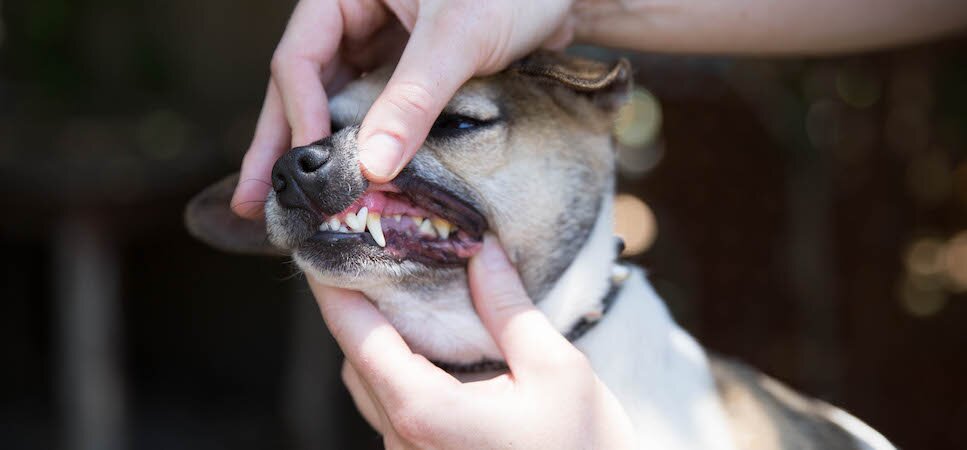
For a preventative illness, dental disease is far too common. Around 80% of dogs and cats over the age of three years have some degree of dental disease. Left untreated, dental disease remains a constant source of pain and inflammation, which can impact other organs in the body such as kidney, heart and liver.
Ways to improve dental care for pets include:
1. Regular tooth brushing
2. Feeding a vet-recommended dental diet or retail dental diet. The latter is only suitable for prevention.
3. Dental dog and cat treats (in moderation!) such as Greenies or Whimzees
4. Raw bones* and other natural firm chews.
* raw bones are not recommended for every pet. Find out more information in our article Are Raw Bones Safe for Dogs?
Veterinary & Retail Dental Care Diets
Table Componenet
Read more in our articles Dental Care for Dogs and Dental Care for Cats.
Diabetes
Nutrition is an important aspect for the management of diabetic dogs and cats. For dogs, the timing of the meals is essential as it can have an effect on blood glucose levels, although many dogs do not require a prescription diet. For cats, a diet high in protein and relatively low in carbohydrates is essential as it can lower the requirement of insulin - therefore, most vets recommend a prescription diet for diabetic cats.
Some tips for feeding a diabetic pet are:

Feed your pet at the same time each day, coinciding with insulin

Avoid changing the diet

Feed dry food diets that contain good quality protein, high in fibre and complex carbohydrates and moderate to low fat.
Your treating veterinarian will be able to make a diet recommendation that will best suit your diabetic pet. As some pets are overweight at the time of diagnosis, your vet may also discuss a weight loss plan. There are many prescription diets that are designed to help aid in the management diabetic dogs and cats - but please note not all prescription diets are suitable for all diabetic pets.
Veterinary & Retail Diets for Diabetes
Table Componenet
Read more in our articles Diabetes in Dogs and Diabetes in Cats.
Food Allergies and Intollerences
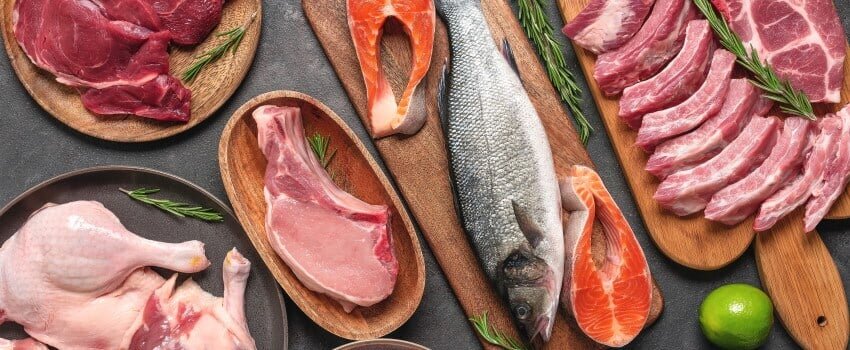
Pets with food allergies may present with chronically itchy skin, ongoing gastrointestinal issues, or both. Just like humans, pets allergic to a certain food require diet free from that causal ingredient. In cats and dogs, the most common foods that cause allergies are chicken, pork, dairy, beef, soy, and wheat. A diet free from these ingredients can be achieved with a hydrolysed food or a novel protein diet.
Option 1: Hydrolysed diets. Hydrolysed diets have undergone a process called 'hydrolysation' - this involves breaking down the protein structure into its component amino acids. Hydrolysation is a process that reduces the 'allergenicity' of the protein, making it so small that it can't trigger an immune reaction.
A hydrolysed veterinary diet is the gold standard for completing an elimination diet trial. An elimination diet trial may be recommended by your vet to help determine whether your pet has a true food allergy. It involves feeding nothing but the hydrolysed diet for a few weeks, and then introducing one new protein every week to 'test' whether your pet has a reaction.
Option 2: Novel protein diets. A novel protein is a new meat source that your pet hasn't encountered before. Novel protein sources available in pet food include venison, rabbit, bison, kangaroo, and fish. For the purpose of this article, we have not included novel diets below as there are too many to list. To search for a novel diet, take a look at diets made with fish, venison, goat and kangaroo. Always check the ingredients if purchasing a novel protein diet, as some manufacturers may include multiple meat proteins in their recipe.
(Please note that if your pet has itchy skin, food allergies only account for approximately 5-10% of cases - allergies to environmental allergens such as grass or insects are much more common. If this sounds more like your pet, skip ahead to the skin care section.)
Food Allergy Diets
Table Componenet
Read more in our articles Food Allergies in Dogs.
Gastrointestinal Issues
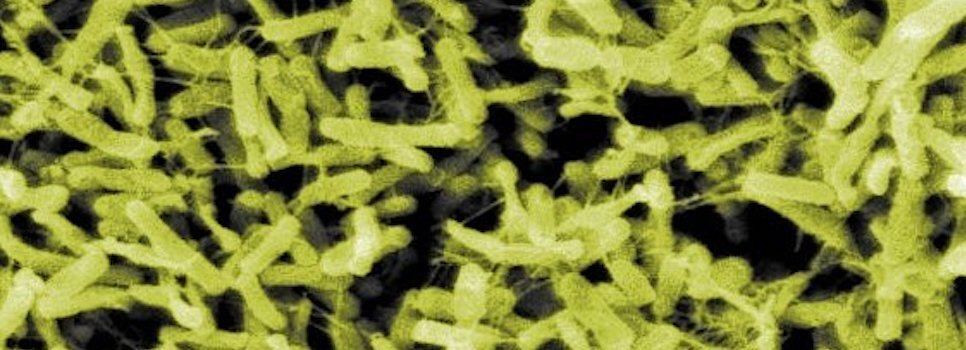
Digestive issues, particularly chronic and unresolving cases, are among the most common reasons that cats and dogs are examined at the vet for. Issues such as pancreatitis, inflammatory bowel disease (IBD), chronic diarrhoea or gas, and gut microflora disturbances can all be managed with a veterinary gastrointestinal diet. Some pets with a sensitive stomach may experience 'on and off' bouts of chronic mild loose stool or gas, while other may experience less frequent but more severe instances with vomiting - but nonetheless, all pets with stomach issues may benefit from a gastrointestinal diet.
Please note that the below gastrointestinal diets are suitable for different conditions - so we highly suggest consulting with your vet to determine what is the best diet for your pet. Also, some of the veterinary diets in our Food Allergies section may be appropriate for your dog with stomach troubles, but are not listed below.
Gastrointestinal Diets
Table Componenet
For more information, see our complete guide on Sensitive Stomach Food for Pets.
Heart Disease
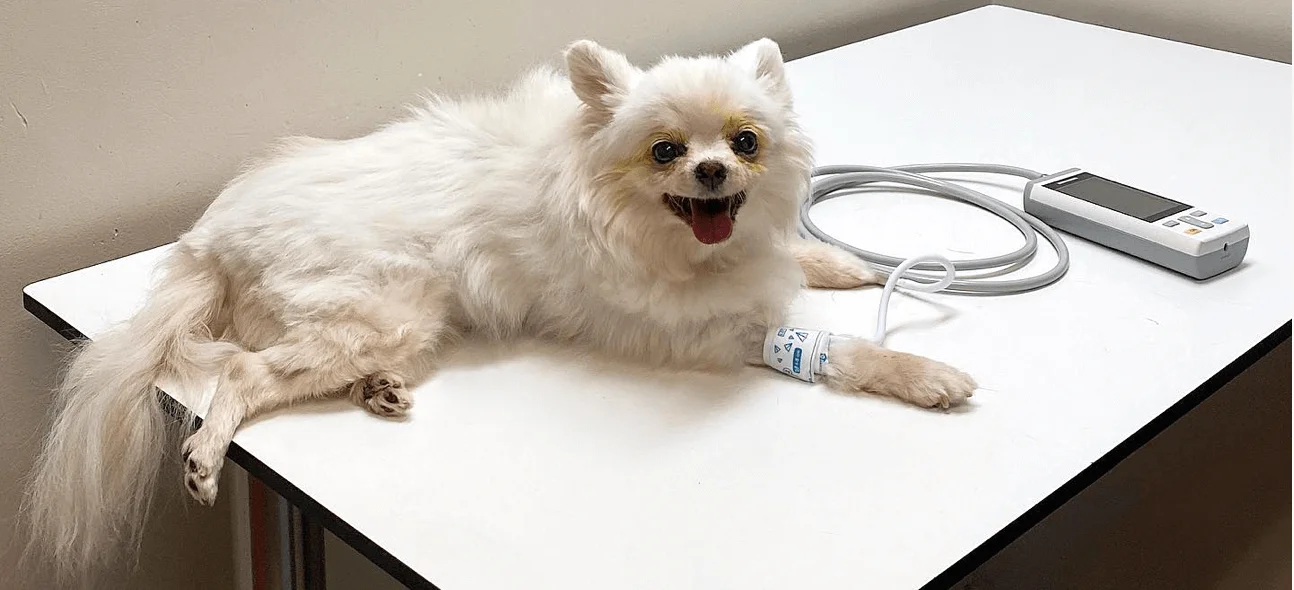
Heart disease in cats and dogs can be cause a wide range of conditions, but the most common forms diagnosed are Mitral Valve Disease and Dilated Cardiomyopathy Heart disease can cause lead to fluid accumulation in the chest in a condition known as 'congestive heart failure'. Symptoms of congestive heart failure include coughing, lethargy, trouble breathing, collapse, pale or blue gums. Some pets with other types of heart disease may develop fluid in the abdomen or lining of the chest known as the pleural cavity.
Nutrition for managing heart disease? While medication is the mainstay of treatment for heart disease, dogs with severe congestive heart disease may benefit from a low sodium diet. Restricted sodium can help to reduce fluid retention. While a prescription diet is available, your vet may simply recommend a senior diet from a premium brand, as these usually contain reduced sodium compared to regular 'adult' pet foods.
Heart Disease Diets
Table Componenet
For more information, see our complete guides on Heart Disease in Dogs and Heart Disease in Cats.
Kidney Disease
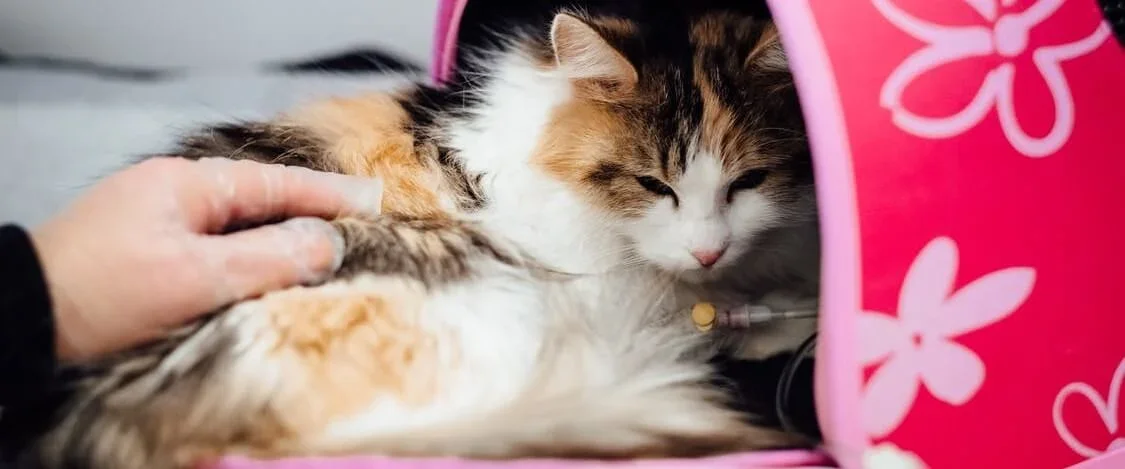
The kidneys perform a number of functions vital to your pet's health; most notably they filter waste products from the bloodstream and help to maintain the correct fluid and electrolyte balance. When enough of the kidney is damaged, it is no longer able to perform these functions, and chronic kidney (renal) disease occurs.
Nutrition for managing kidney disease? The most critical part of treatment for kidney failure is the use of a veterinary prescription diet. These digestible protein and amino acids to reduce the load on the kidneys and therefore reduce the levels of toxic waste products circulating in the blood. They also have reduced levels of phosphorus which can protect the kidneys from further damage and can increase life expectancy, particularly in cats.
Kidney Diets
Table Componenet
For more information, see our complete guide to Kidney Disease in Pets.
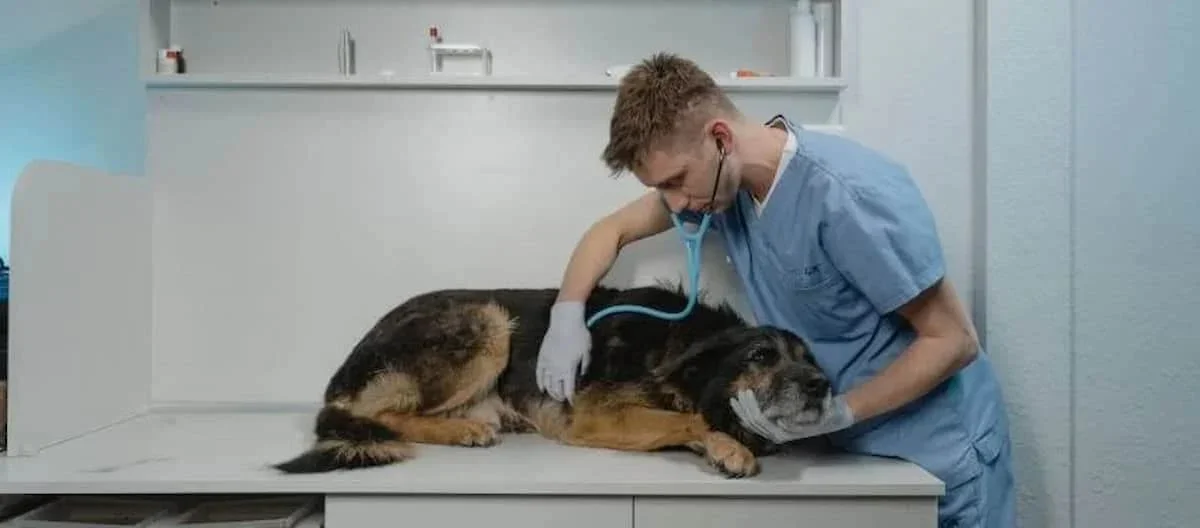
The liver is the second largest organ in the body and performs countless vital functions such as the removal of toxic substances from the bloodstream and helping with digestion and clotting. When the liver is no longer working correctly there are widespread negative effects throughout the body. Liver failure can occur from a wide range of diseases - including toxins, cancer, viruses, and congenital conditions.
Nutrition for managing liver disease? While medication (or surgery) is the most important component of liver failure treatment, nutrition can certainly help. The liver has an amazing capacity to heal, and veterinary prescription liver diets are formulated to support the liver during this process. These diets contain controlled levels of high-quality protein to reduce the liver's workload, reduced sodium to control blood pressure, and l-carnitine to assist with fat metabolism. They also contain antioxidants and low levels of copper to minimize copper accumulation in liver cells.
Veterinary Liver Diets
Table Componenet
For more information, see our complete guide to Liver Disease in Dogs.
Obesity and Weight Control

As adorable as pudgy pets may be, obesity is no laughing matter. Being overweight can have serious health consequences for your pet including increased risk of osteoarthritis, diabetes, respiratory problems and anal gland issues. In addition, obese and overweight dogs can suffer from heat intolerance, constant discomfort, and are likely to have a reduced lifespan compared with their lean counterparts.
How to Help Your Pet Lose Weight
1. Weight management diet. The best weight management diet for your pet depends on your pet's current state - veterinary diets are indicated for pets that actively need to lose weight, while retail diets are great for pets who have already lost weight and need to maintain their healthy size. (However, note that many prescription diets are also suitable for weight management when fed at the right daily amount). Our top retail diets include Hills Perfect Weight, Royal Canin Light Care, and Advance Weight Control, while our top veterinary diets include Hills Metabolic and Royal Canin Satiety.
2. Exercise. The best type of exercise varies depending on the pet. Walking and running may suit overweight dogs who are otherwise healthy, but non-weightbearing and cooling exercise such as swimming may be better suited to dogs with secondary joint issues or brachycephalic airways (squished faces). For cats, play is the best form of exercise - games that involves chasing, jumping, hunting, or scavenging are perfect.
3. Reduce treats and table scraps. Remember that for a small pet, one single cube of cheese carries the same calorie content as one and a half hamburgers for an adult human. It's important to be strict, and make sure everyone in the family follows the rules.
Weight Control Diets for Pets
Table Componenet
Please note that there are many other reduced calorie, 'light' or low fat diets from natural brands including Ivory Coat, Savourlife, Black Hawk, and Earthborn Holistic. View all natural 'light' foods here.
Read more about the best diets and exercise tips in our guides Weight Loss Tips for Dogs and Weight Loss Tips for Cats.
Skin Care and Allergies

Itchy skin issues among pets are incredibly common in Australia. Insects, flowering plants, grasses, pollens, and weeds may all cause your pet to itch, scratch, and develop a range of skin conditions. 'Atopy' is the general term used to describe an allergy to things in the environment like pollen, dustmites, grasses, etc.
Skin care diets and topical products are particularly important in breeds prone to skin allergies, including Staffies, French Bulldogs, Cavoodles, Pugs, and German Shepherds.
It's important to determine the cause of your pet's itchy skin prior to commencing with an at-home treatment. For more information on skin allergies in pets, consult our other guides: Why Does My Dog Have Sensitive Itchy Skin? and The Causes of Itching in Cats.
How to manage itchy skin in pets
1. Omega Fatty Acid Oral Supplements are highly beneficial as they strengthen the junction between skin cells and promote a strong skin barrier. Great products include Paw Blackmores Fish Oil or Natural Animal Solutions Omega Oil for dogs, or Hemp Pet Hoki and MCT Oil Blend for cats.
2. A Skin Care Diet - Both retail and veterinary lines are available. These diets tend to contain beneficial skin care ingredients such as fish oil or omega fatty acids, and some are made with a limited allergen formula just in case food allergies play a role. Veterinary skin care diets tend to provide more potent levels of skin support ingredients.
3. Flea Control - did you know that fleas are one of the most common causes of itchy skin? It's therefore vital to maintain flea prevention all year round. Top products for Australia include Nexgard, Bravecto, or Simparica. For cats, we recommend Bravecto / Bravecto Plus, or Revolution / Revolution Plus.
4. Antibacterial shampoos - may be required if your pet suffers from a bacterial or yeast infection in their skin. Your vet may recommend a product like Malaseb or Mediderm Medicated Shampoo.
5. Restorative lotions and oils - veterinary dermal creams can help soothe the skin and create a strong skin barrier. Examples include Natural Animal Solutions Dermal Cream or Dermoscent Biobalm.
Veterinary & Retail Diets for Pets
Table Componenet
Read more in our articles What is the Best Dog Food For Skin Allergies?.
Thyroid Disease
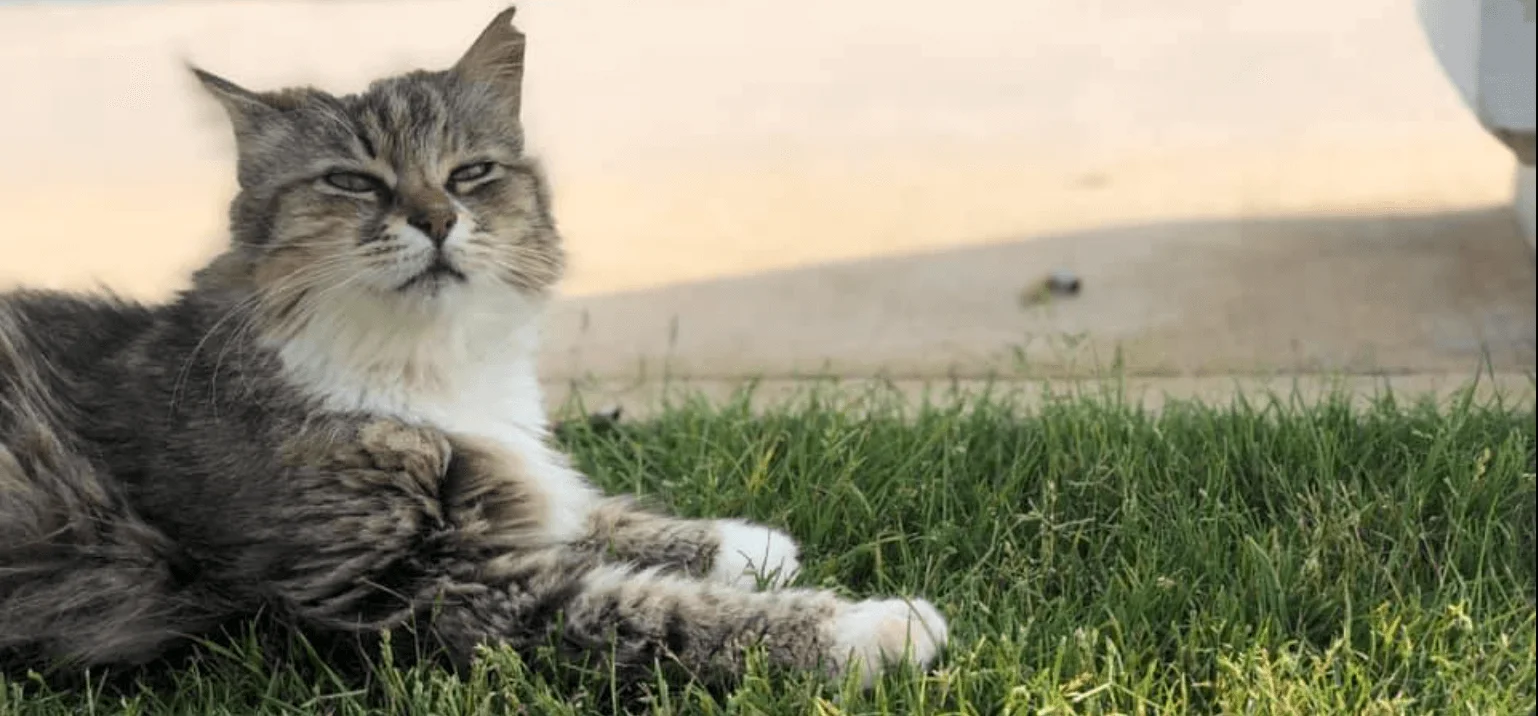
The thyroid is a small gland in the neck which produces thyroxine hormone and helps maintain body temperature, metabolism, blood pressure, heart rate, and gastrointestinal function. An underactive thyroid results in hypothyroidism, whereas an overactive thyroid results in hyperthyroidism. Hypothyroidism is a common condition in dogs, but a special diet is not needed. On the other side of the coin, hyperthyroidism is a common condition in cats and a special thyroid diet can sometimes be used as a treatment. Therefore, only hyperthyroidism is discussed below.
How is Hyperthyroidism treated?
There are a few treatment options for Hyperthyroidism in cats and your veterinarian will usually suggest a treatment that works best for your cat. Options generally include:
1. Radiotherapy - an effective long term curative treatment for most cats. This involves an injection with radioactive iodine, and is usually done at a specialist veterinary centre.
2. Medication - this involves daily dosing of anti-thyroid medication, in a pill or paste form. This is also effective but must be maintained for life.
3. Surgery - Surgical removal of the thyroid gland is a procedure done under a general anesthetic and is also curative, meaning that no medication is required long-term.
4. Dietary management - an alternative to medication, surgery, or radiotherapy (ie, NOT to be used in conjunction with these treatments). The principal behind dietary therapy is that because iodine is converted into thyroxine hormone, a restricted iodine diet means the overactive thyroid is not able to overproduce thyroxine. Hill's Prescription Diet Y/D limits the amount of iodine. Please note that if your cat is on an iodine-restricted diet, they cannot eat any other foods and treats (this includes hunting and scavenging!), and they will need to be on this diet lifelong.
Thyroid Diets for Pets
Table Componenet
Read more in our article Hyperthyroidism in Cats.
Urinary Disease (FLUTD / Cystitis)
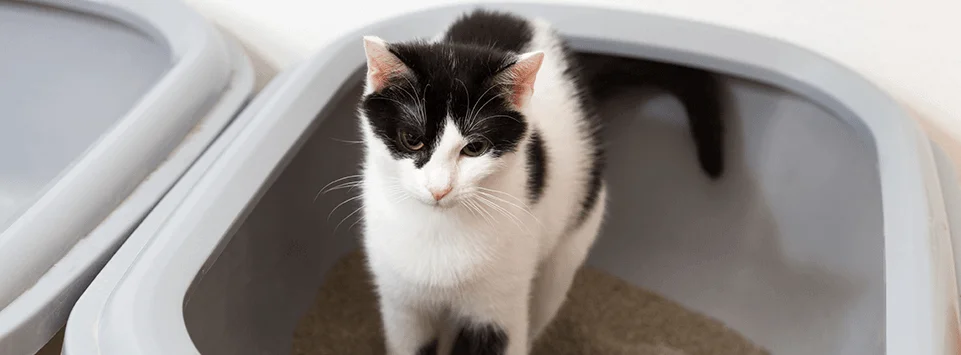
Urinary problems are a very common presenting complaint in veterinary clinics. Urinary issues commonly seen in dogs and cats include urinary infections, idiopathic cystitis, crystalluria and uroliths (the formation of crystals and stones), and urethral blockage. Urinary disease can become a medical emergency if the urethra is blocked.
Diets for urinary disease are usually 'preventative' and suitable for to help prevent urinary disease in pets who have experienced it in the past, or to prevent it occuring in pets who might be prone due to breed dispositions. However, some prescription diets can be used as an active treatment to help dissolve bladder stones.
DID YOU KNOW? Never buy a prescription urinary diet unless your vet has recommended it after testing your cat's urine. This is because different diets are specifically designed to treat different types of stones. For example, Hills Prescription Diet U/D is only suitable for treating conditions caused by oxalate or cysteine stones, and may actually make other conditions (for example, cystitis associated with struvite stones) worse.
How to Prevent Urinary Disease
1. Encourage water intake - Drinking more water means that more water passes through the kidneys and bladder, which dilutes the urine and reduces crystal and stone formation. Water fountains for pets are a great way to encourage your pet to drink more.
2. Feed wet food as part of your pet's diet - this is another way of increasing your pet's water intake! Wet foods generally contain around 60-80% water, whereas dry foods usually contain only around 10% moisture.
3. Keep them trim - Just as weight control will help to prevent arthritis, it will also reduce the likelihood of urinary issues, particularly in cats.
4. Good quality food - avoid cheap, low-quality brands and stick to premium foods as this can help prevent urinary issues. Premium pet foods have controlled levels of salt, minerals, and protein to help avoid the formation of crystals in the urine.
5. Provide enough toileting opportunities - for cats this means ensuring that you have enough litter trays throughout the house or access to the outdoors via cat doors or flaps. A general rule of thumb for litter trays is to provide the same number of trays as you have cats, plus one extra. For dogs, offering unlimited access to appropriate toileting places by using pet doors, or training your pooch to use an indoor pet loo are a great way to ensure that your dog's bladder is emptied regularly.
6. Reducing stress. As mentioned above, for cats in particular, stress and anxiety can play a major role in the development of urinary issues - in fact this is why many urinary diets are combined with anti-anxiety ingredients.
Veterinary & Retail Urinary Diets for Pets
Table Componenet
For more information, take a look at our guide on Preventing Urinary Issues in your Cat.
Further Reading on Pet Health Care

Want to know more? Check out our Discover Page for more tips from our expert Vets on keeping your pets happy and healthy.